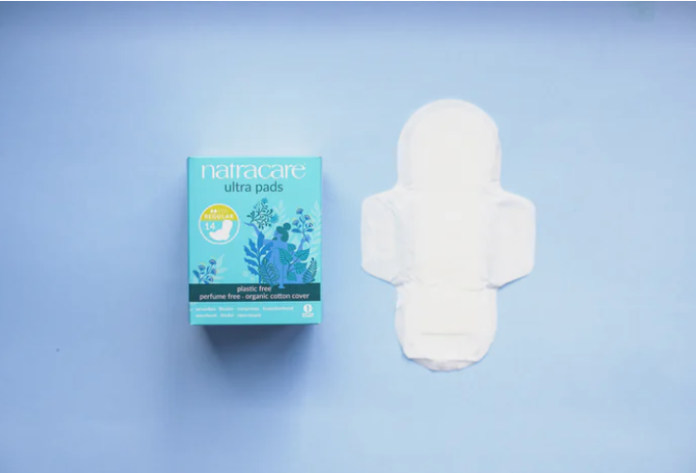World menstrual hygiene day is observed on 28th May every year by the United Nations and its agency the United Nations Population Fund (UNFPA), together with Sexual Reproductive Health and Rights (SRHR) advocates across the globe, to bring to light the issues that come with menstruation. Every day, schoolgirls in countries like Ghana, discover blood on their clothes for the first time in environments without toilets, water, or a supportive teacher, mentor, or role model to help them understand the changes in their bodies. The first time a girl sees blood from her vagina (menarche) can be surprising and terrifying. “Ei!! what is happening to me? Am I normal?”. This may affect her self-esteem especially when it happens in open places like the classroom.
Nonetheless, the physiological basis of menstruation, hormonal changes during puberty, the menstrual cycle, infection risks brought about by bad practices, and material disposal choices accessible to girls are seldom addressed openly. Even when adolescents seek information about menstruation, adults usually feel shy, uncomfortable, and reluctant to discuss it because of socio-cultural & religious misconceptions and restrictions.
Today, we will learn about some of the mind-boggling and commonly asked questions on menstruation I gathered from social media that can help you feel more confident during menstruation.
What is menstruation, and why is it necessary?
Broadly speaking, menstruation is when a female body releases tissue that she no longer has use for from her vagina. This tissue comes from the uterus, which is where a baby (fetus) develops in the female body. The uterus lining thickens through hormonal activities, every month in wait for a fertilized egg if the woman becomes pregnant. If the egg is not fertilized by sperm through penetrating sex, the hormonally thickened lining is released as blood through the vagina. It is necessary because if it is not released it will cause infections; it will make you ill.
Is it true that your menses stinks?
This isn’t the case. When menstrual fluid comes into contact with air, it produces a foul odour. There should be no odour as menstrual fluid is collected inside the vagina, such as with a sanitary pad or tampon. If you’re concerned about odour, just change your pads and tampons regularly. This is why personal hygiene is key during menstruation.
Is it safe to take a bath or shower during my period?
Absolutely YES!! It’s critical to maintain a clean and fresh appearance throughout your menses. That is a simple way to stay feminine and refreshed. Change your sanitary pad or tampon regularly – at most 8hourly. Mind you, your friends may shun you if you don’t smell or look fresh.
After removing the pads, properly dispose of them off. Rap it well to hide the bloodstains and re-rap them in tissue paper before dumping them into the bin. Don’t dump it into the WC to choke it.
Will my period be noticed by someone, such as boys or my mother?
No, they won’t know until you tell them or you mistakenly get conspicuously soiled with the blood. It’s entirely up to you whether or not you share if they ask. But I entreat you strongly to tell your mother, an aunt or a big sister.
I have not told anyone I have started menstruation because I am shy. What should I do?
You’re not alone. A lot of girls have the same concerns. When you have concerns about your period(menses), your mother will be one of your best resource persons, so try to initiate the discussion. I can assure you that she will be patient and accommodating. I entreat all mothers to be patient to answer every question even if it may sound “stupid”. During this period of your life, she could be your best friend. Still unable to communicate with your mother? You might also ask an aunt, a friend’s mother, or an older sister. You can also make good use of the internet.
What does it feel like to have a period?
When your menses is in full swing, it doesn’t seem like something is going on. Likely, you won’t even notice it coming out. When your period begins, you may notice some dampness in your private region, which could be the result of a few blood stains on your underwear.
Is it painful to have your period?
While menstruation does not cause pain, some girls and women experience cramps or other unpleasant symptoms during their periods. This is caused by hormones released by your body during menstruation, which cause the uterus to contract to shed its lining. The contraction is accompanied by abdominal pains, sometimes pain in the thighs associated with occasional nausea and vomiting, facial breakouts, breast pains and lumpiness.
Is there something I won’t be able to do until my menses starts?
Your period doesn’t have to stop you from doing things you usually do. You can still go to school, do your house chores, visit your mates, participate in sports, do everything you usually do. Menstruation should not be used as a yardstick to shirk responsibilities. The pain normally should not affect your daily activities like your sleep, going to school or work, consistently. If the pain is excruciatingly unbearable and more painful than your usual, consult a gynaecologist.
What is the normal amount of blood loss allowed during menses?
During menstruation, the average person loses between 30 and 40 millilitres of blood or two to three tablespoons of blood. But, up to 4 teaspoons of blood is not bad.
Menstruation is not a disease so it should not keep you incapacitated. Boys, please don’t ridicule your female friends who get soiled mistakenly. Rather, call your female friends or an elderly female around to support her. Mothers, aunties, queen mothers, female teachers, headmistresses, female managers and chaperones please be accommodative. Be ready to answer any questions about menstruation asked by the younger ones. They need you more.
MICHAEL BAAH BINEY
(@_papabiney on Twitter & Instagram)
mikebiney77@gmail.com
Final year Medical Student
University For Development Studies
Member of curious minds Ghana and activ8
Fellow at African Youth Center for Health(AYCH)

Michael Baah Biney is an advocate for healthy practices. His goal is to aid in the advocacy of preventing diseases before complications arise. In his bid to champion healthy living, Michael has volunteered with UNFPA, PPAG among others to share knowledge and mentor young people. He is currently a final year medical student of the University for Development Studies, Tamale and a member of Curious Minds Ghana.















